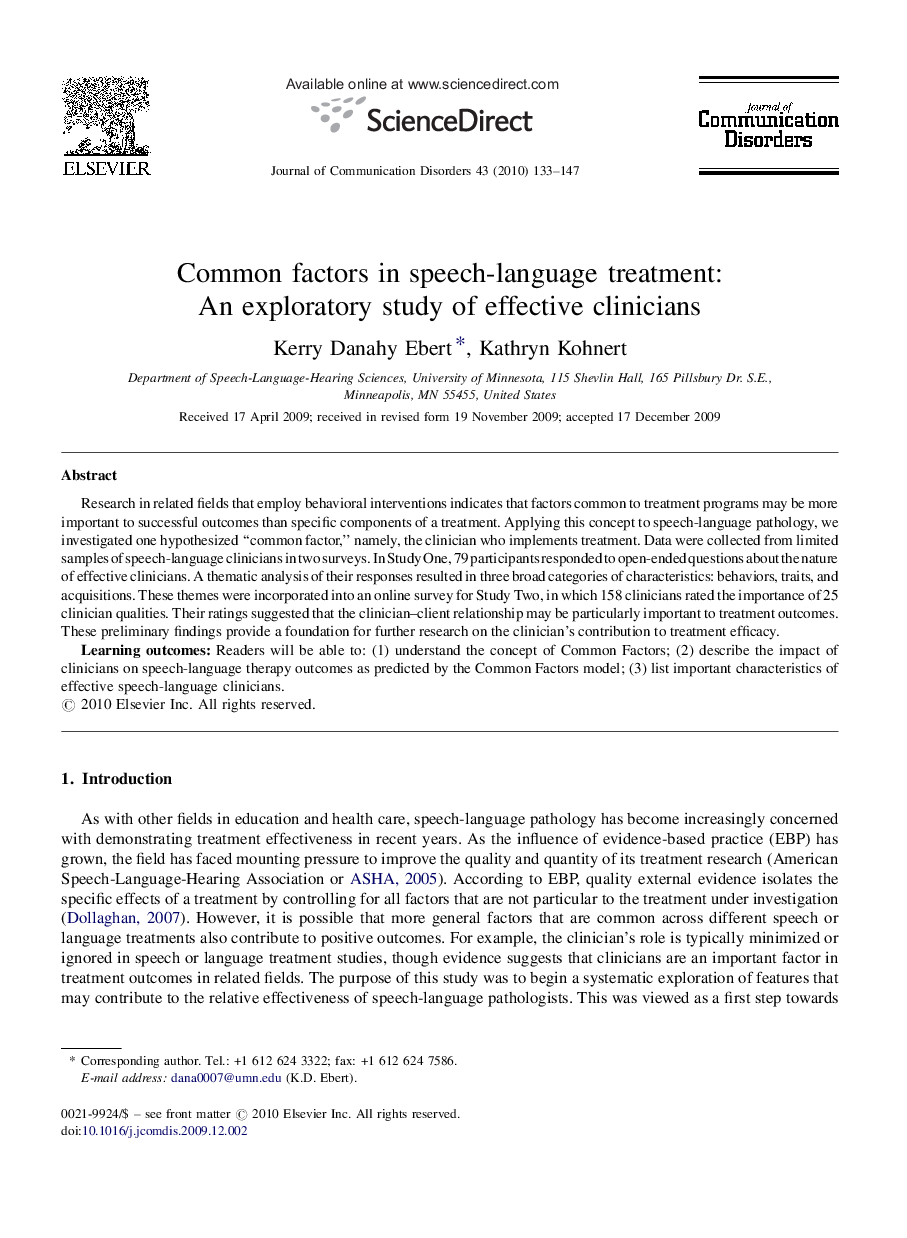| Article ID | Journal | Published Year | Pages | File Type |
|---|---|---|---|---|
| 911021 | Journal of Communication Disorders | 2010 | 15 Pages |
Research in related fields that employ behavioral interventions indicates that factors common to treatment programs may be more important to successful outcomes than specific components of a treatment. Applying this concept to speech-language pathology, we investigated one hypothesized “common factor,” namely, the clinician who implements treatment. Data were collected from limited samples of speech-language clinicians in two surveys. In Study One, 79 participants responded to open-ended questions about the nature of effective clinicians. A thematic analysis of their responses resulted in three broad categories of characteristics: behaviors, traits, and acquisitions. These themes were incorporated into an online survey for Study Two, in which 158 clinicians rated the importance of 25 clinician qualities. Their ratings suggested that the clinician–client relationship may be particularly important to treatment outcomes. These preliminary findings provide a foundation for further research on the clinician's contribution to treatment efficacy.Learning outcomes: Readers will be able to: (1) understand the concept of Common Factors; (2) describe the impact of clinicians on speech-language therapy outcomes as predicted by the Common Factors model; (3) list important characteristics of effective speech-language clinicians.
